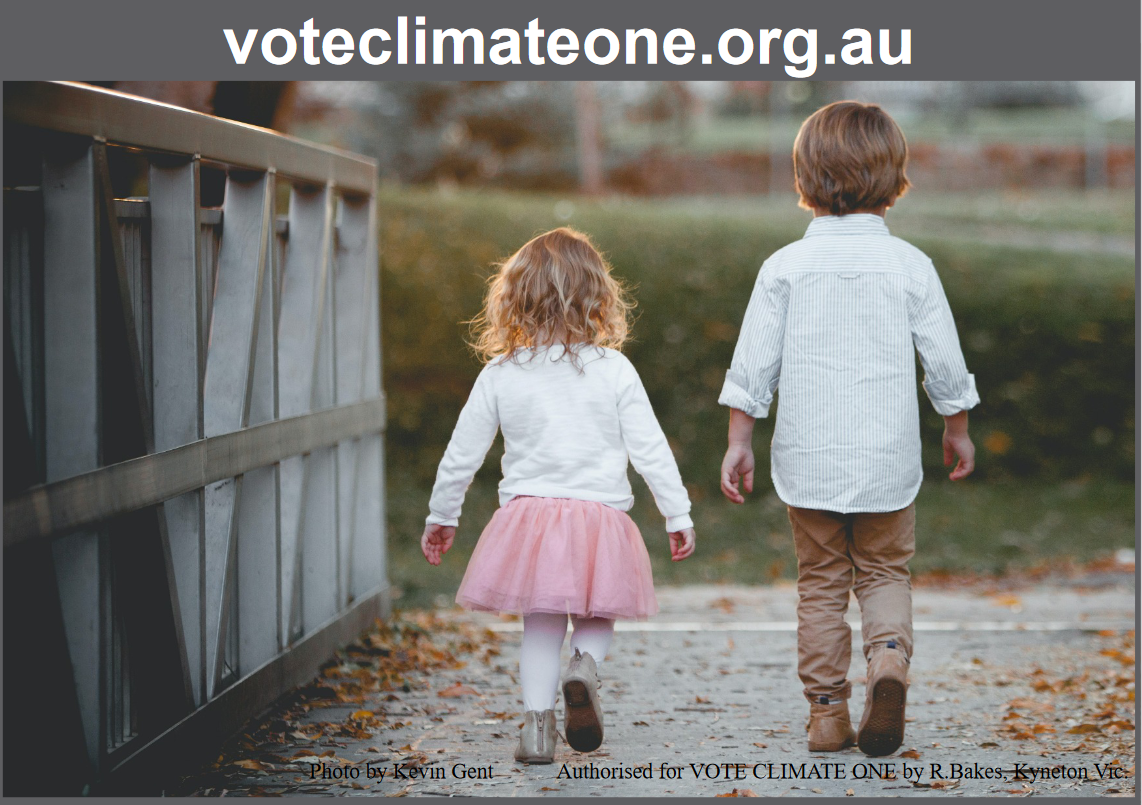WE Forum’s strategic intelligence on Climate Change
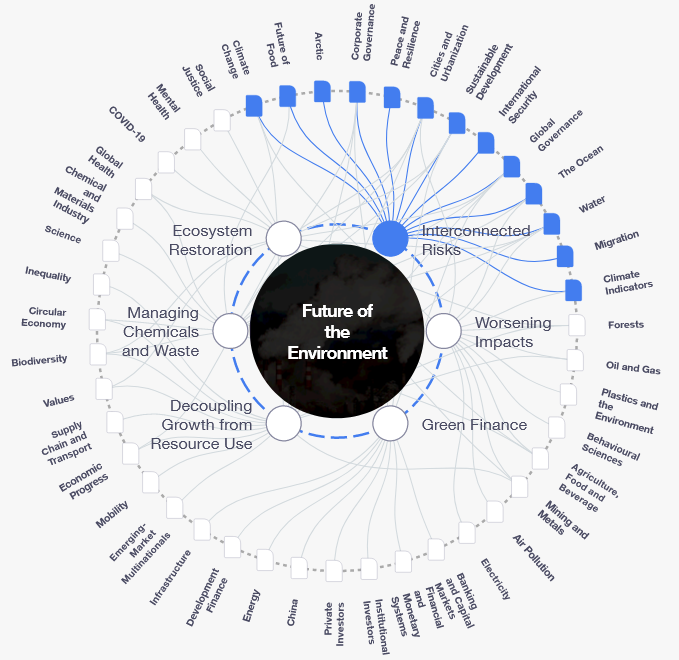
‘Strategic Intelligence’ app relating to all kinds of transformational issues, esp. Climate Change has been created by World Economic Forum
WE Forum’s Strategic Intelligence maps provide logical maps to the complex tangle of relationships among facts, risks, threats, issues, tools and actions involved in working out how to transform an existing problem area into some kind of a solution. The maps don’t claim to show you how to solve the problem, but at least they give a fair idea of where you need to look for solutions and what they might involve.
Transformation Maps can help you explore and make sense of the connections between different economies, industries and global issues. It is a dynamic way of exploring the transformational forces that relate to a topic, such as Climate Change or Artificial Intelligence, co-curated with leading universities and international organizations.
https://intelligence.weforum.org/
The featured image shows the major domain of interest in the middle, e.g., Future of the Environment surrounded by a wheel of grouped topics (e.g., relating to Risks) that in turn link to individual issues (e.g., Arctic) that takes you to the Arctic Domain. Note – for each domain the right side of the page explains what the current group topic or Domain is about. Registration for public access gives you a lot for free. There are also paid monthly subscriptions that allow you to use the system as your own tool for tracking complex interactions.
There is one bias in the World Economic Forum’s approach here that may concern some Climate Sentinel News followers. As stated in their video, their aim is to further sustainable development. Arguably, given the state of ecological overshoot we are in, we should be far more concerned to down-size our impacts on our limited planetary resources rather than engage in further development. Nevertheless, other than reminding all to ‘consider the source’ and recognize that it is not the last word, I would not hesitate to recommend it as a useful tool for navigating the complexity of transformation.
The video explains the concept:
WE Forum also provide access to a vast array of current documentation relating to specific areas of interest through their Discover function:
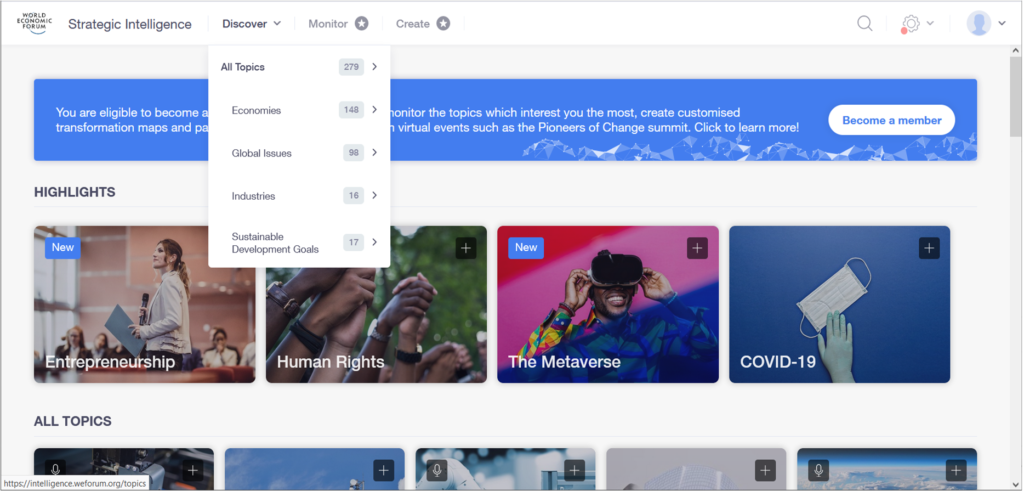
What does this mean for Australian Voters and candidates?
What this WE Forum application shows is how complex and complicated the tasks are that we face in trying to transform the current global climate emergency into a foreseeable future extending beyond near-term mass extinction. In our Climate Sentinel blog posts I think I the evidence presented overwhelmingly documents that our current LNP Government of fossil fuel puppets, fools and knaves will not and could not cope with the complexity of interacting issues that have to be dealt with if the climate emergency is to be solved.
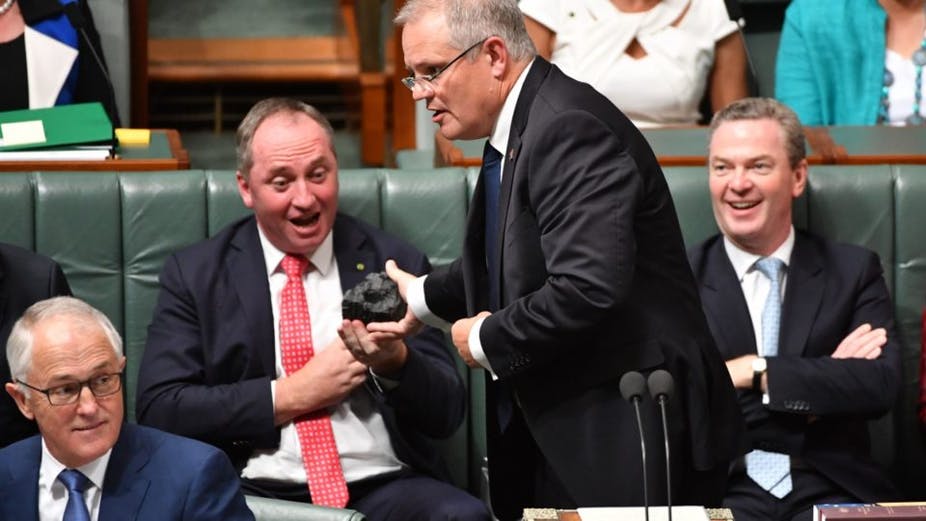
In the upcoming Federal Election we must take advantage of the possibility to replace this tragic comedy routines of the LNP with sensible intelligent people able and willing to put dealing with the complexities of the climate emergency at the top of their agendas if elected to Parliament. Our government needs to wake up, smell the smoke, and to have any hope of putting out the fire urgently mobilize whatever it takes to fight the emergency both locally and globally rather than working to protect the special interests feeding the fire. Even a child can see that doing anything else is rearranging the furniture as the house (our planet) is burning up.
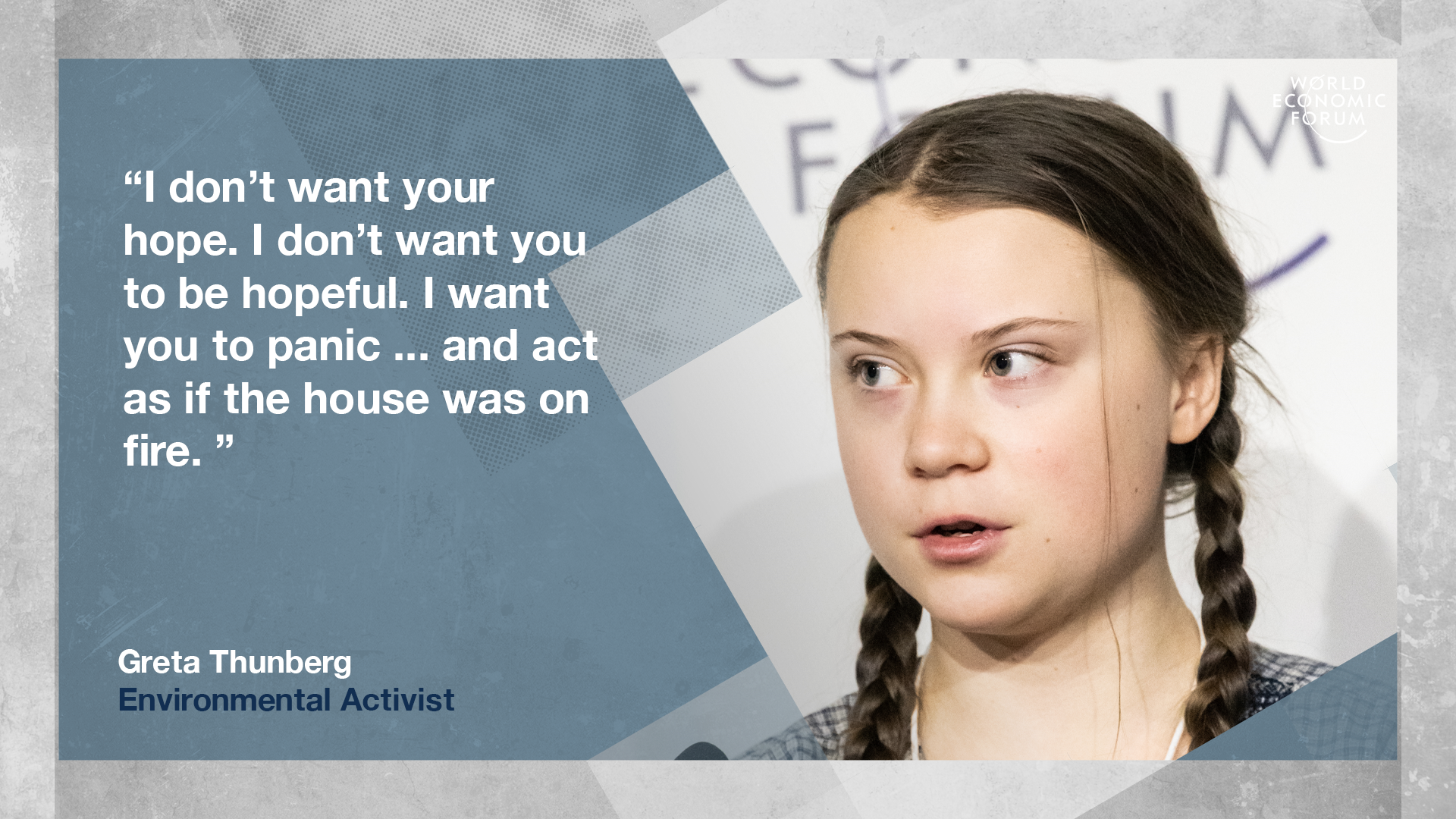
The type of candidates Vote Climate One hopes to see elected may actually want to use the WE Forum’s Strategic Intelligence app described here for help in working through the tangle mitigations and partial solutions that will be required to mitigate and put out the fires that are warming the globe. We have designed our Traffic Light Voting System to help you establish your preferences from first to last for the House and Senate candidates in your electorate based on how likely they are to help defeat the climate emergency. With good choices we may soon have at least an Australian government doing what it can to provide a path towards a bright future for our offspring rather than the end.
